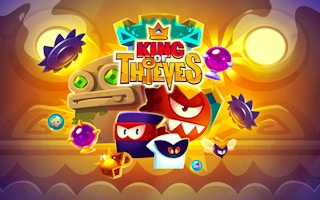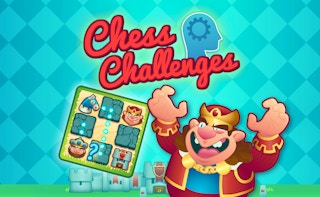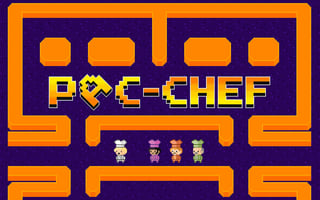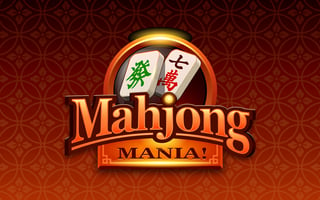Classics games
Classic Games and Their Enduring Appeal
Classic games, with their simple yet addictive gameplay, have a special place in the hearts of gamers worldwide. Titles such as Cut the Rope, Bomber Friends, Papa's saga, and those inspired by Mario Bros, Tetris, Galaga, etc., have defined the landscape of gaming by offering straightforward challenges that require both strategy and skill. These games often feature puzzle-solving, strategic planning, and a charming aesthetic that appeals to both young and old players alike.
The allure of classic titles lies in their simplicity and the nostalgic value they hold. Many of these games use a two-dimensional perspective, offering easy-to-learn controls but challenging levels that increase in difficulty as the game progresses. Iconic elements such as power-ups, enemy obstacles, and time-limited challenges are staples within these games, providing a timeless gameplay experience that has continued to evolve yet remain faithful to its roots.
Despite the proliferation of high-definition and complex video games, classic games have remained popular, showcasing the enduring appeal of well-crafted, simplistic gameplay mechanics over the flash and spectacle of modern gaming.
The Resurgence of Classic Games
In an era dominated by advanced graphics and complex storylines, there's a significant segment of the gaming community that yearns for the simplicity and charm of classic games. This nostalgia has not only led to the resurgence of classic titles on modern platforms but has also inspired a new generation of games that emulate the style and gameplay of the classics. From mobile platforms to modern consoles, classic games and their modern inspirations are more accessible than ever, bringing the joy of classic gaming to new audiences.
Navigating the World of Classic Games
The history of gaming is rich with iconic classic titles that have paved the way for what video games have become today. From the pixelated adventures of Mario to the strategic block placements in Tetris, these games have set foundational gameplay mechanics that are still celebrated in the gaming community. The evolution from arcade cabinets to console and mobile gaming has allowed these timeless classics to be enjoyed by generations of gamers, reinforcing their place in the history of video games.
As gaming technology advances, classic games remind us of the industry's humble beginnings and the simple joy that video games can bring. Their legacy continues as they are revisited and reinvented for new platforms, ensuring that they remain a cherished part of gaming culture.
The Legacy of Classic Games
Classic games serve as a testament to the enduring nature of well-designed gameplay. Even as gaming evolves, the principles of challenge, strategy, and fun that defined classic games continue to be appreciated. The genre of classic games encompasses a diverse range of titles that all share the common trait of being engaging and fun, regardless of the era in which they were created.
Whether it’s through direct ports of classic titles or through new games inspired by the classics, the spirit of these games lives on. They offer a unique form of entertainment that is both challenging and rewarding, proving that great game design is timeless.
FAQs
What defines a classic game?
A classic game is characterized by its straightforward gameplay, often featuring puzzle-solving, strategic thinking, and action. These games are distinguished by their enduring popularity and their influence on subsequent video games.
What are some examples of classic games?
Examples of classic games include Cut the Rope, Bomber Friends, Papa's saga, as well as those inspired by seminal titles like Mario Bros, Tetris, Galaga, and many more.
Why do classic games remain popular?
Classic games continue to captivate players with their simple yet challenging gameplay, nostalgic appeal, and the joy of mastering their levels. Their timeless design and accessibility contribute to their ongoing popularity.
What are the most popular classics?
 Bomber Friends
Bomber Friends Cut The Rope
Cut The Rope Paco Paco
Paco Paco Skyblock
Skyblock 2d Platformer Coin
2d Platformer Coin Two Cups
Two Cups Perimeter - Legate Edition
Perimeter - Legate Edition Little Alchemy
Little Alchemy Hunters And Props
Hunters And Props Fruit Blaster
Fruit Blaster King Of Thieves
King Of Thieves Go Chicken Go
Go Chicken Go
 Jacksmith
Jacksmith Intergalactic Battleship
Intergalactic Battleship Papa Louie
Papa Louie Mandala Coloring Book
Mandala Coloring Book Battleship War Multiplayer
Battleship War Multiplayer Block Puzzle Chuzzle Classic
Block Puzzle Chuzzle Classic Mafia Billiard Tricks
Mafia Billiard Tricks Pixeroids
Pixeroids Papa's Bakeria
Papa's Bakeria Little Bouncing Guys
Little Bouncing Guys Music Tools
Music Tools X O Tic Tac Toe
X O Tic Tac Toe Exploder.io
Exploder.io Junior Chess
Junior Chess Papa's Cupcakeria
Papa's Cupcakeria Cooking Fever
Cooking Fever Snake Escape
Snake Escape Snakebit 3310
Snakebit 3310 Juicy Dash
Juicy Dash Chess Challenges
Chess Challenges Simply Breakout
Simply Breakout Waffle Words
Waffle Words Fruit Chef
Fruit Chef Neon Brick Breaker
Neon Brick Breaker Domino Legend
Domino Legend Ricochet Kills
Ricochet Kills Papa's Freezeria
Papa's Freezeria Slicer N Scale
Slicer N Scale Papa's Burgeria
Papa's Burgeria Classic Snake Html5
Classic Snake Html5 Chocolate Tetris Game
Chocolate Tetris Game Head Puzzle Shooter
Head Puzzle Shooter Pac-chef
Pac-chef Spacial Snake
Spacial Snake Mahjong Mania
Mahjong Mania Mini Putt Garden
Mini Putt Garden Minesweeper
Minesweeper Solitaire 13in1 Collection
Solitaire 13in1 Collection Little Mermaid
Little Mermaid Buraco
Buraco Word Up
Word Up My Auto Service
My Auto Service Minesweeper Classic
Minesweeper Classic Tetra Blocks
Tetra Blocks Rock Garden Deluxe
Rock Garden Deluxe Tunnelshuttle
Tunnelshuttle Sudoku Royal
Sudoku Royal Royal Kingdom
Royal Kingdom Arkanoid Bricks
Arkanoid Bricks Ballmania
Ballmania Grimace Shake & Skibidi Tetris
Grimace Shake & Skibidi Tetris 3d Maze
3d Maze Minigolf Kingdom
Minigolf Kingdom 8-bit Console Tank
8-bit Console Tank Greedy Gnomes
Greedy Gnomes Flappy Bounce
Flappy Bounce Teen Patti Match
Teen Patti Match Pop It Fidget Now
Pop It Fidget Now Spong
Spong Bug Splat
Bug Splat